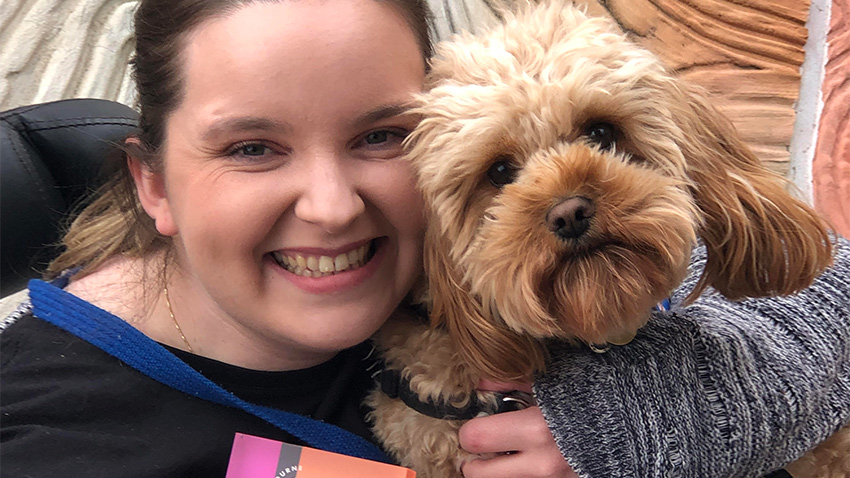Heading down the hospital corridor the hall echoes with the squeal of rubber tires on linoleum and the soft pitter-patter of paws. As we wait in the crowded waiting room I feel a light pawing followed by a gentle push of weight against my legs. Curious eyes watch on and people smile gently at what they assume is a small gesture of love.
What they don’t realise is that Riley, my Assistance Dog in Training, has picked up on the rise in my heart rate and is hard at work. This seemingly small action is, in fact, one the keys to independence as I know it.
What to know about assistance dogs?
Assistance Dogs are classified as “working animals that are specially trained to help people who are living with physical disabilities to move around, do everyday activities and tasks, and be more independent.”
The benefits of Assistance Dogs continue to be discovered and are definitely not just for those experience physical disability. There are many different umbrellas that Assistance Dogs fall under.
They can help people with:
- Medical conditions
- Physical disability
- Psychosocial Disability
- Mental illness
- Vision impairment
- Hearing impairment
Riley and I have been a team for three years now and he performs tasks and alerts that help alleviate symptoms, ease physical strain and emotional distress that may arise as a result of both physical and psychosocial disabilities. Now I can’t imagine my life without him. Having him there beside me through it all has opened doors I’d never thought I’d see through again.
So as we sit here in the waiting room and I feel Riley press himself against me I reach down. As I pat him I use the texture of his fur and the pace of his breathing to help ground me.
I can’t help but smile to myself thinking back on the adventures we have had, challenges we have overcome together, things we have learnt and the massive shift in my independence and wellbeing. There’s no doubt about it; for me, the combination of four paws and four wheels has changed my life in more ways than I could possibly imagine.
If you would like to know more about Assistance Dogs, their rights and the incredible things they are helping their handlers achieve head over to Assistance Dogs Australia (www.assistancedogs.org.au)
Riley and I are in fact registered as a MindDog team, which have a large focus on psychiatric assistance dogs (although there are teams like us that are a mix of psychiatric, physical and medical). This means that there are people with assistance dogs that may look like they don’t have a disability but in fact do.
If you’d like to read more about the important work that MindDog does please head to https://www.minddog.org.au/
About the writer
Jess Cochran is a 29-year-old from Melbourne. Jess lives with physical and psychosocial disabilities as well as chronic illness. Jess is a writer, performing artist, actress, model, and disability advocate.
She hopes that her continued involvement with advocacy, writing and the performing arts will help break down the barriers that performing artists with disabilities face when trying to access work, training and performance spaces.
